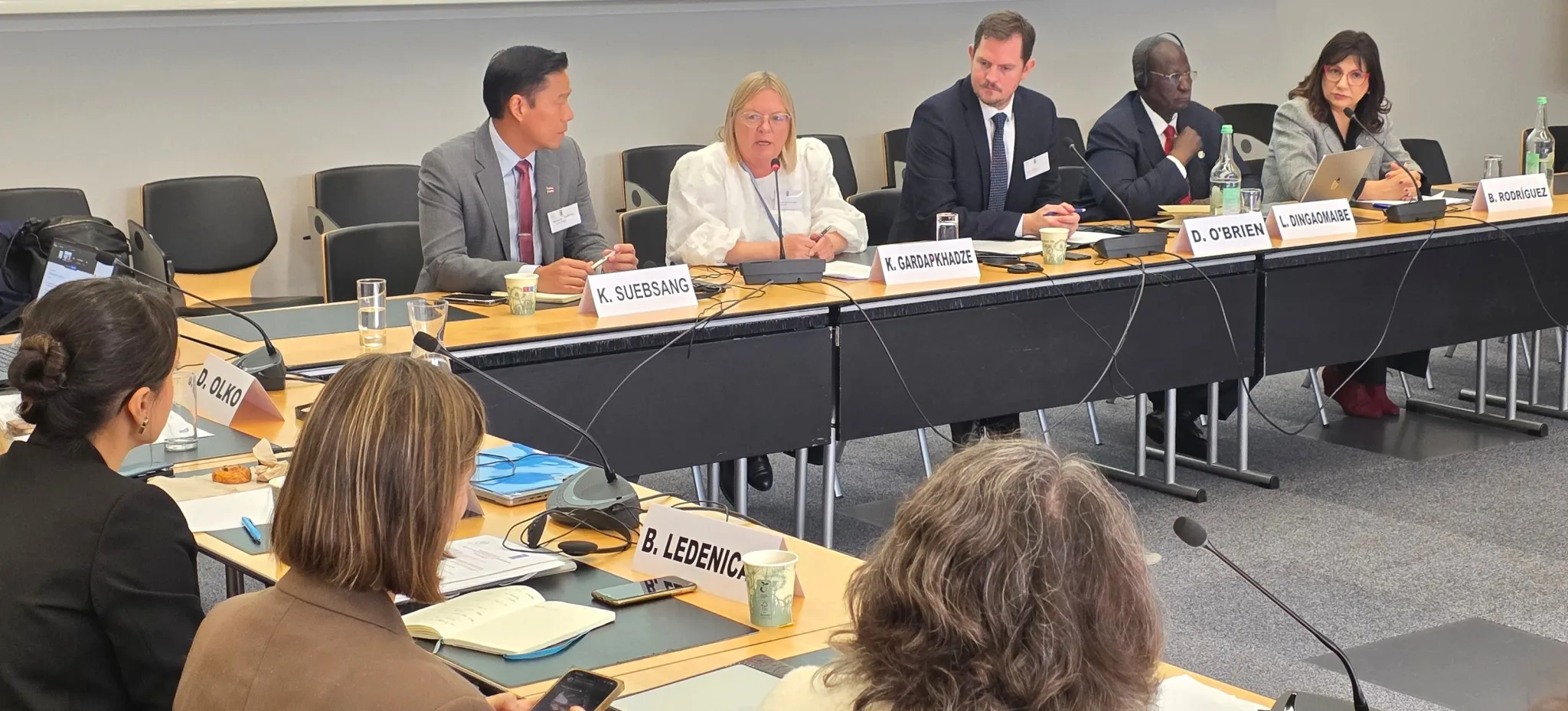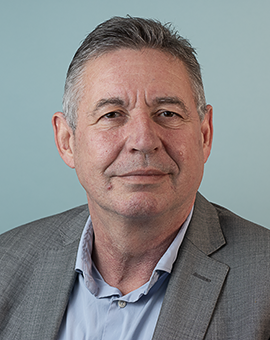International IDEA champions dialogue and resilience at IPU-UNDP Conference

The event, "Strengthening democracy: Toward coherent and stronger support for resilient parliaments," was organized by the Inter-Parliamentary Union (IPU) and the UN Development Programme (UNDP) on 24-25 October 2025 in Geneva. It brought together Members of Parliament and leading parliamentary strengthening experts to explore how parliaments can serve as stabilizing forces and "defend and extend" democracy amid rising political polarization, declining public trust, and growing insecurity.
In the opening session, “Democratic resilience: Defending and strengthening parliaments in troubled times,” Katarzyna Gardapkhadze, International IDEA’s Director of Global Programmes, set the tone for the discussions. Drawing on her background as a psychologist, she challenged the conventional understanding of resilience as mere recovery.
Resilience is often described as the ability to bounce back after a crisis,” Ms. Gardapkhadze noted. “But that assumes that the starting point was perfect, and that a full recovery is automatic, which it rarely is.
Instead, she presented International IDEA's broader understanding of resilience: the ability to anticipate and prepare for a storm, and the capacity to emerge from it transformed into something stronger.
While the challenges confronting parliaments today are unlike anything seen before," Ms. Gardapkhadze noted, "overcoming them... demand[s] the same old age solution, good faith dialogue.
She warned that as politics becomes a "zero-sum game," the capacity for dialogue is collapsing, and "when dialogue collapses, democracy follows". Citing International IDEA’s 2023 report, she underscored the decisive role of women parliamentarians in fostering constructive dialogue and coalition-building, noting that “parliaments with higher levels of women’s representation are significantly more likely to resist democratic erosion.”
She also urged parliaments to reconnect with "disenchanted" young people, particularly Generation Z, who are politically aware and active yet but "deeply sceptical of formal politics".
Ms. Gardapkhadze concluded by emphasizing three imperatives for democratic renewal: restoring non-partisan dialogue, promoting and protecting women's leadership in politics, and engaging citizens, especially young people, as co-creators of the democratic future
On the second day, Jonathan Murphy, Head of the International IDEA-led Inter Pares: Parliaments in Partnership programme, spoke on the panel "Strengthening parliamentary resilience with early targeted action". The discussion explored how to detect and counter subtle but systemic efforts to capture democratic institutions before a full democratic collapse. Priorities identified included enhancing cybersecurity, combating foreign interference, and ensuring parliaments' continuity of operations during crises.
The conference served as a vital forum for aligning strategies among practitioners and MPs, reinforcing International IDEA’s core message: democratic resilience is not a passive state, but an active, transformative process rooted in dialogue and inclusion.




